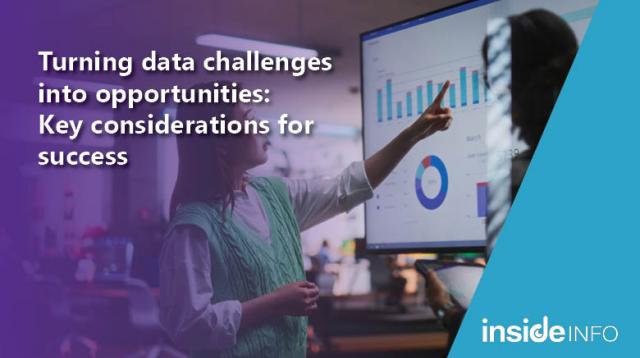
While Australia is a nation made up of all manner of industries, few are as large or important to the economy as engineering, property services and construction. The Australian Bureau of Statistics notes that, in 2015, there were more construction businesses operating in the country than any other, and the relentless demand for housing and large infrastructure projects means that's unlikely to change anytime soon.
By their very nature, construction, property and engineering services projects are high risk: they require large capital investment and expenditure, they can often present major physical and logistical challenges, and every cost must be monitored to ensure projects are completed on budget. Keeping abreast of customer needs, optimising resources, logistics and supply chain are critical to the process, as contractors are under constant pressure to improve margins, reduce costs, improve service levels and predictability - all common concerns that can be aided with business intelligence (BI).
Helping the decision making process with BI
Any engineer or builder can likely attest to the fact that every project is unique. There are a lot of disparate elements that need to be managed, and things can change quickly based on shifting customer expectations and fluctuating budgets and resources. Building a practice of project management excellence within your firm entails more than just hiring the right people. It requires giving them the right environment, processes and tools they need to succeed. Let's take a look at some of the ways BI and planning can benefit service-based firms.
- Project management: Maintaining a sense of control over all aspects of a project is essential for delivering on time and to budget. A carefully developed BI dashboard can help you see precisely what's happening at all stages of individual projects, from the day-to-day status right through to correspondence with customers and billing data. Near real-time visibility means you can track progress accurately, and keep an eye on project cash flow and profitability to ensure you're always on track.
- Managing resources: Construction and engineering projects obviously depend heavily on careful use of resources, with often tight budgets requiring an extra level of diligence. A BI solution allows service-based organisations to optimise resource utilisation, measure effectiveness of teams and observe resource costs across multiple departments, whether that be in terms of materials for a project or the personnel who are working on it.
- Budgeting, Forecasting and Planning: Project budgeting and workforce planning and forecasting is arguably one of the most important functions in service-based firms. It is important to use dedicated planning and forecasting tools to project, plan and model impacts at an individual employee or project level to provide insight into overall impact on the financial plan of the business.
- Greater agility: All businesses can benefit from being more agile. Having a clear view of operations means it will be easier to accommodate fluctuating customer demands, and make adjustments to planning to improve profitability and take advantage of new opportunities.
Qlik delivers real-time performance data for service-based firms
People in the construction, property services and engineering industry know the importance of having the right equipment to get the job done, and that sentiment is no different when it comes to BI tools. When looking to make analytics readily available to management and field staff many of our property, construction and engineering based clients, like Porter Davis Homes, have found that having a self-serve analytics solution that is drillable from a summarised view to an individual project, client or Project Manager level, that is easy to use and can be deployed anywhere is immensely valuable.
"We're an agile business that is focussed on using data to make informed decisions. Qlik allows us to highlight exceptions so we can act quickly. It takes just minutes to extract data and push it out to field-based supervisors - it previously took up to five hours," explains Leigh Brown, General Manager Operations, Porter Davis Homes.
Fast implementation cycles also place less demand on IT, and the lower cost of Qlik compared to other BI solutions makes it an excellent choice for organisations who want to see results as soon as possible. To understand more about the work we did with Porter Davis Homes click below to download the case study.






